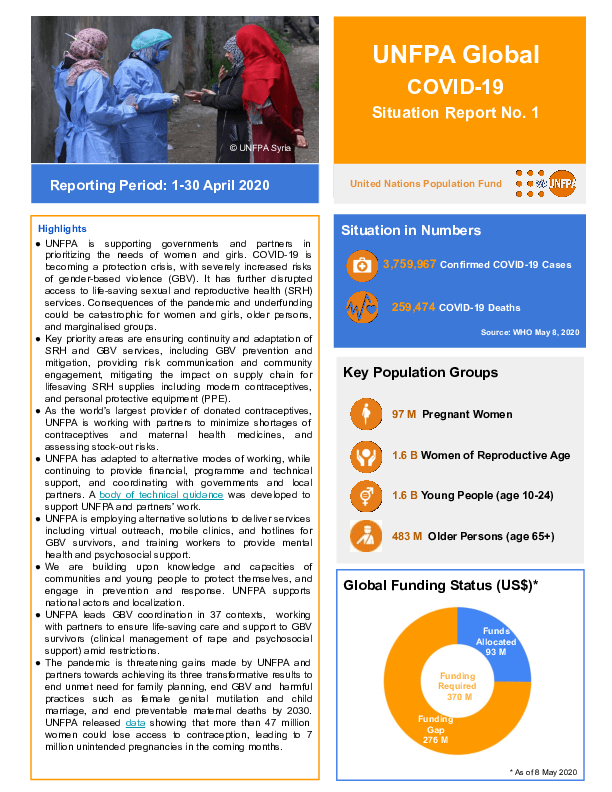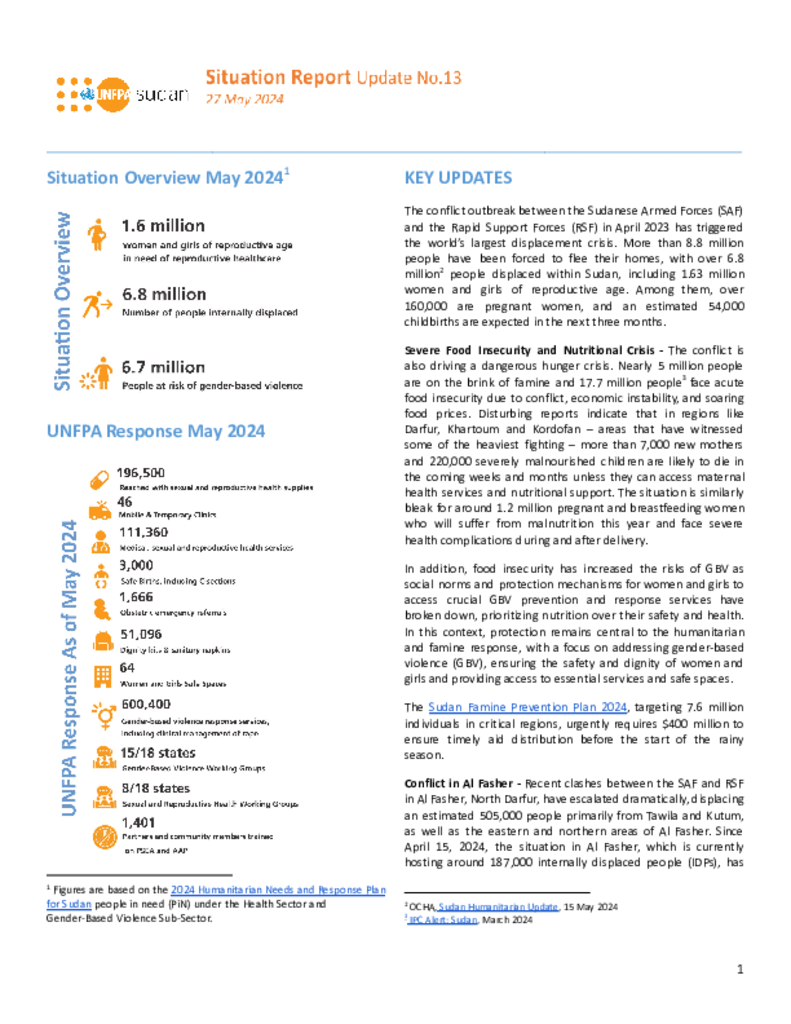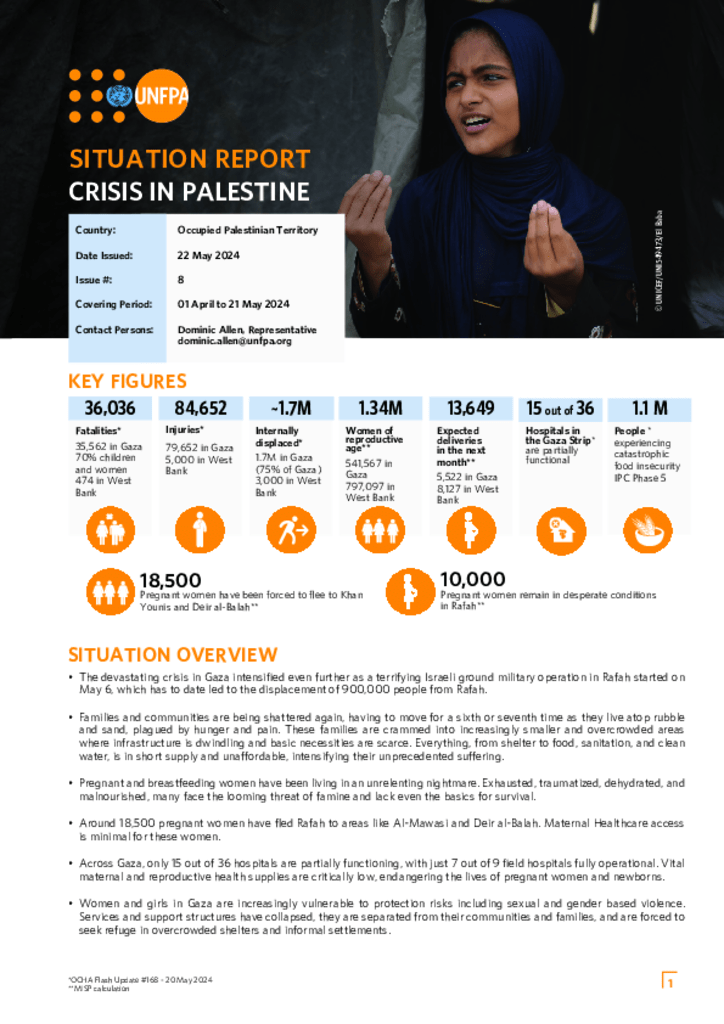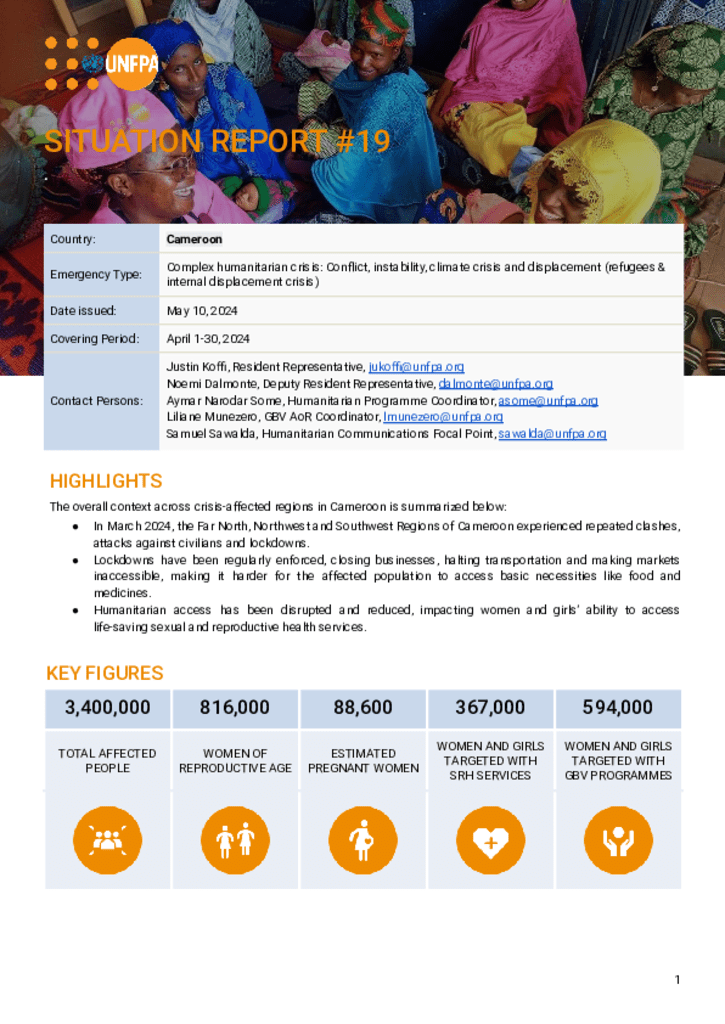
At the country, regional and global levels, UNFPA is coordinating efforts to reduce the spread and negative impacts of COVID-19 with government, UN, NGO and private sector partners. UNFPA is working closely with partners through country offices, 6 Regional Offices and HQ.
- At global level, the UNFPA Executive Director attends the Inter-Agency Standing Committee (IASC) Principals coordination meetings, and meetings of the Secretary-General’s Executive Committee for high-level decision making in the overall COVID-19 response. Under the auspices of the Executive Committee, UNFPA actively contributed to the Secretary-General’s Report on the UN’s COVID-19 Response.
- UNFPA works within international humanitarian and development systems to ensure the needs of women and young people are included in COVID-19 guidance, response plans and country-level implementation. UNFPA’s work contributes to prevention and control of the pandemic to ensure the continuity of essential services for women, young people and vulnerable populations in COVID-19 affected areas.
- UNFPA is a member of the WHO-led UN Crisis Management Team.
- UNFPA collaborates with the Executive Office of the UN Secretary-General to develop Secretary-General reports and briefs on COVID-19 in areas such as gender, human rights, people on the move, children, older persons and others. UNFPA co-led with WHO the drafting of the health pillar of the UN framework for the immediate socio-economic response to COVID-19, and provided contributions to the other pillars of social protection and basic services, economic recovery, and multilateral collaboration.
- At country level, UNFPA engages through UN country coordination mechanisms to ensure the continuity of essential services such as sexual and reproductive health and response to gender-based violence (GBV), and mitigation of social and economic impacts, including protection from GBV. UNFPA and the broader UN system have issued technical guidance for country offices.
- The Director of the UNFPA Humanitarian Office is a member of the IASC Emergency Directors Group that is leading global coordination in countries affected by humanitarian crisis through the cluster system. UNFPA leads the GBV Area of Responsibility under the Protection Cluster, and is a key partner in the Health Cluster, working to prioritize women’s needs. UNFPA co-authored IASC briefs on Flexible Funding for Humanitarian Response and COVID-19, Gender Alert for COVID-19 Outbreak, and PSEA during the COVID-19 Response.
- UNFPA coordinates with the WHO team that leads the WHO response to COVID-19. UNFPA is a stakeholder at global level, and UNFPA regional offices are coordinating with regional WHO teams. UNFPA is also represented through its technical experts in the WHO experts’ groups in developing technical guidance, actively engaging and coordinating for regional and country support, and strategic planning and financing.
- UNFPA is part of inter-agency working groups on Health Operations, Social Impact, GBV, Human Rights, Impact on Critical Supply Chain and Goods, and the IASC Mental Health and Psychosocial Support Reference Group. UNFPA is also engaged through the United Nations Department of Safety and Security. .
- UNFPA is a member of the Advisory Committee of the UN COVID-19 Response and Recovery Multi-Partner Trust Fund (along with UNDP, UNICEF, ILO, UNCTAD, and WFP).
- UNFPA coordinates internally between divisions and levels through a COVID-19 Crisis Response Team, led at the Deputy Executive Director level, that meets regularly to ensure efforts are coordinated, strategic and effective.




